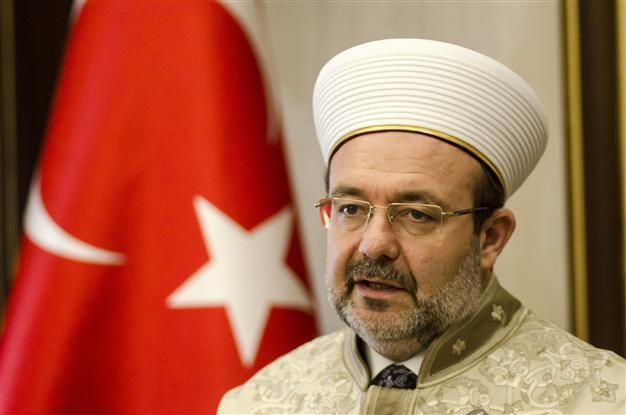Repent over your tattoos, Turkey’s top religious body says
ISTANBUL

Diyanet head Mehmet Görmez. AA Photo
Turkey’s top religious body has issued a fatwa that urges Muslims who have tattoos to repent if they are unable to erase them.
The Religious Affairs Directorate (Diyanet) regularly issues fatwas to address questions posed by Muslims in Turkey. In its latest fatwa, the Diyanet reasserted that tattoos were banned by the Prophet Muhammad, although they do not violate the rules of Islamic ablution.
“A person who has tattoo on his/her body should erase it, if possible. He/she should repent to God if the tattoo cannot be erased,” said the Diyanet in a response to the question. It also said temporary tattoos invalidate ablution.
“Our religious bans tattoos, making images on the skin by injecting paint under the skin. Our prophet has said ‘Allah has cursed the people who change their shape created by God, such as a woman who tattoos on someone else or has a tattoo done, those who remove hair from their face or eyebrows or those who remove their teeth or make them thinner.’ Having a tattoo is banned, but it does not prevent making ablutions,” said the Diyanet.
A government decree changing the regulation on the dress code in public schools that was published Sept. 27, 2014, in the Official Gazette banned make-up, tattoos and piercings for students.
Students “are to be present in schools with their faces visible; cannot use scarves, berets, hats, bags or similar materials that feature political symbols, pictures or writings; cannot dye their hair, cannot have tattoos or make-up; cannot have piercings and cannot have moustaches or beards,” the new regulation published in the Official Gazette read.
The regulation came after President Recep Tayyip Erdoğan rebuked a 18-year-old Galatasaray youth player over his tattoos in July 2014. “What are these tattoos? Why do you harm your body like that?” Erdoğan, who was the prime minister at the time, told the young man. “Don’t be fooled by foreigners. God forbid, it could even give you skin cancer in the future.”
